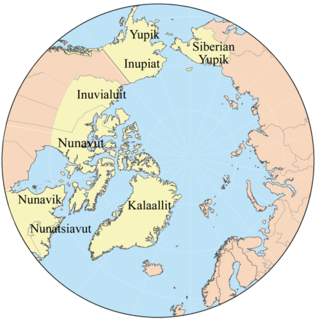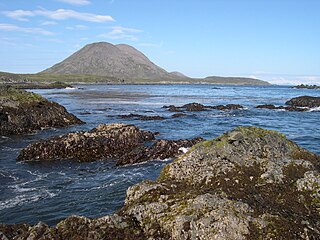Selected publications
This article may be in need of reorganization to comply with Wikipedia's layout guidelines .(December 2012) |
Monographs
- Archaeology of the Sapsuk River, Alaska. Herbert Maschner, Buck Benson, Garrett Knudsen, Nicole Misarti. 2010. Monographs of the Archaeology Branch, Alaska Region, Bureau of Indian Affairs.
- Peoples of the Northwest Coast: Their Prehistory and Archaeology. Kenneth Ames and Herbert Maschner. 1999. London: Thames and Hudson.
Edited volumes
- Sanak Island, Alaska: A Natural and Cultural History. Katherine Reedy‐Maschner and Herbert Maschner, editors. 2012. Idaho Museum of Natural History, Pocatello.
- The Northern World AD 900‐1400. Herbert Maschner, Owen Mason, Robert McGhee, editors. 2009.University of Utah Press, Salt Lake City.
- Time and Change: Archaeological and Anthropological Perspectives on the Long Term. Dimitra Papagianni, Robert H. Layton and Herbert Maschner. Edited by Dimitra Papagianni, Robert H. Layton, and Herbert Maschner. 2008. Oxford: Oxbow Press.
- Handbook of Archaeological Theories. R. Alexander Bentley, Herbert Maschner, and Christopher Chippindale, editors. 2007. Altamira Press.
- Handbook of Archaeological Methods. Herbert Maschner and Christopher Chippindale, editors. 2005. Altamira Press.
- Complex Systems and Archaeology: Empirical and Theoretical Applications. R. Alexander Bentley and Herbert D. G. Maschner, editors. 2003. University of Utah Press, Salt Lake City.
- Anthropology, Space, and Geographic Information Systems. Mark Aldenderfer and Herbert Maschner, editors. 1996. Oxford University Press.
- New Methods, Old Problems: Geographic Information Systems in Modern Archaeological Research. Herbert Maschner, editor. 1996. Center for Archaeological Investigations Press, Southern Illinois University.
- Darwinian Archaeologies. Herbert Maschner, editor. 1996. Interdisciplinary Contributions to Archaeology Series, Plenum Press.
- The Emergence of Cultural Complexity on the West Coast of North America. Herbert Maschner and Brian Fagan, editors. 1991. Special Section Antiquity, 65:921‐976.
Papers
- Indigenous, Ethnohistoric and Archaeological Perspectives on the Recent Decline of Steller Sea Lions (Eumetopias jubatus) in Alaska. Herbert D. G. Maschner, Andrew Trites, Katherine L. Reedy‐Maschner, Matthew Betts, Amber Tews, and Michael Livingston. Fish and Fisheries. 2012. Idaho State University Department of Anthropology, Pocatello, Idaho. 1-31
- Salmon, Complexity, and Sedentism along the North Pacific. Herbert D. G. Maschner, Oxford Handbook of Arctic Archaeology. Owen Mason and Max Frieson, editors. 2012. Oxford University Press, Oxford.
- Early retreat of the Alaska Peninsula Glacier Complex and the implications for coastal migrations of First Americans. Nicole Misarti, Bruce P. Finney, James W. Jordan, Herbert D. G. Maschner, Jason A. Addison, Mark D. Shapley, Andrea Krumhardt, James E. Beget. Quaternary Science Reviews. 2012. 48(1): 1-5.
- Oxford Handbook of North American Archaeology. Herbert D. G. Maschner, Archaeology of the North Pacific. Timothy Pauketat, editor. 2012. Oxford University Press, New York. Pp. 135‐145.
- Archaeology of the Northwest Coast. Herbert D. G. Maschner, Oxford Handbook of North American Archaeology. Pp. 160‐172. Timothy Pauketat, editor. 2012. Oxford University Press, New York.
- Reconstructing site organization in the eastern Aleutian Islands, Alaska, using multi‐element chemical analysis of soils. N. Misarti, N, B. Finney, and H. Maschner. 2011. Journal of Archaeological Science 38(7): 1441‐1455.
- The Virtual Zooarcaheology of the Arctic Project (VZAP). Herbert D. G. Maschner, Matthew Betts, Corey Schou. 2011. Pp. 41‐43. Society for American Archaeology Newsletter. January.
- Matthew W. Betts, Herbert D. G. Maschner, Corey D. Schou, Robert Schalder, Jonathan Holmes, Nicholas Clement, Michael Smuin. 2011. Journal of Archaeological Science. Volume: 38, Issue: 4, Pages: 755.e1‐755.e9.
- Virtual zooarchaeology: building a web‐based reference collection of northern vertebrates for archaeofaunal research and education. William Agger and Herbert Maschner. Norse Transatlantic Trade and the Spread of Typhus from North America to Eurasia. 2010. Gunderson Lutheran Medical Journal. Vol 6. No. 2. Pp. 54‐56.
- An Introduction to the Biocomplexity of Sanak Island, Western Gulf of Alaska. Herbert D. G. Maschner, M.W. Betts, J. Cornell, B. Finney, N. Huntly, J.W. Jordan, N. Misarti, K.L. Reedy‐Maschner, R. Russell, A. Tews, S. Wood, B. Benson. 2009. Pacific Science. 63(4):673-709.
- Medieval Norse and the Bi‐directional Spread of Epidemic Disease between Europe and Northeastern America: A New Hypothesis. William Agger and Herbert Maschner. 2009. In Herbert *Maschner, Owen Mason, Robert McGhee, editors. University of Utah Press. Pp. 321‐337.
- Fishtails, Ancestors, and Old Islanders: Chirikof Island, the Alaska Peninsula, and the Dynamics of Western Alaska Prehistory. Herbert D. G. Maschner. 2008. Alaska Journal of Anthropology. Pp. 171‐183.
- Catastrophic Events and Punctuated Culture Change: The Southern Bering Sea and North Pacific in a Dynamic Global System. Herbert D. G. Maschner and James W. Jordan. 2008. In Time and Change: Archaeological and Anthropological Perspectives on the Long Term edited by Dimitra Papagianni, Herbert Maschner, and Robert H. Layton. Oxford: Oxbow Press. Pp. 95‐113.
- Photon Activation for Archaeological Analysis at Idaho State University. Herbert D. G. Maschner, Buck Benson, Jaromy Green, and Douglas Wells. 2007. Photon Activation for Archaeological Analysis at Idaho State University. Proceedings of the 8th International Topical Meeting on Nuclear Applications and Utilization of Accelerators (AccAppʹ07), Pocatello, Idaho,July 29‐August 2, 2007. American Nuclear Society. Pp. 307‐312.
- Historic Warfare. Herbert Maschner. 2005. In The Encyclopedia of the Arctic. Edited by Mark Nuttall. Routledge Press. Pp. 2152‐2154
- Redating the Hot Springs Village Site. Herbert Maschner. 2004. Alaska Journal of Anthropology. Vol. 2, Nos 1‐2. Pp. 100‐116.
- Traditions Past and Present: Allen McCartney and the Izembek Phase of the Western Alaska Peninsula. Herbert Maschner. 2004. Arctic Anthropology. Vol. 41, No. 2, Pp. 98‐111.
- The Russell Creek Manifestation of the Arctic Small Tool Tradition on the Western Alaska Peninsula. Herbert Maschner and James Jordan. 2001. In Archaeology in the Aleut Zone of Alaska: Some Recent Research, Pp. 151‐172. Don E. Dumond, editor. University of Oregon Anthropological Papers No. 58.
- Coastal Paleogeography and Human Occupation of the Lower Alaska Peninsula. James Jordan and Herbert Maschner. 2000. Geoarchaeology: An International Journal. Volume 15, Issue 5, Pp. 385‐414.
- Sedentism, Settlement and Village Organization on the Lower Alaska Peninsula: A Preliminary Assessment. Herbert Maschner. 1999. Pp. 56‐76. In B. Billman and G. Feinman (editors). Settlement Pattern Studies in the Americas: Fifty Years since Viru. Washington: Smithsonian Institution Press.
- The Evolution of Northwest Coast Warfare. Herbert Maschner. 1997. In Troubled Times: Violence and Warfare in the Past. D.Martin and D.Frayer, editors. Gordon and Breach, Publishers. Pp. 267‐302.
- Settlement and Subsistence in the Later Prehistory of Tebenkof Bay, Kuiu Island. Herbert Maschner. 1997. Arctic Anthropology. Pp. 74‐99.
- American Beginnings and the Archaeology of Beringia: A Comment on Variability. Herbert Maschner. 1997. Review Article of American Beginnings, Frederick Hadleigh West, editor. Antiquity. Pp. 723‐728
- The Politics of Settlement Choice on the Prehistoric Northwest Coast. Herbert Maschner. 1996. Pp. 175‐189. In M. Aldenderfer and H. Maschner (editors). Anthropology, Space, and Geographic Information Systems. Oxford University Press.
- Geographic Information Systems in Archaeology. Herbert Maschner. 1996. Pp. 1‐21. In New Methods, Old Problems: Geographic Information Systems in Modern Archaeological Research H. Maschner, editor. Center for Archaeological Investigations Press.
- Theory, Technology, and the Future of Geographic Information Systems in Archaeology. Herbert Maschner. 1996. Pp. 301‐308. In New Methods, Old Problems: Geographic Information Systems in Modern Archaeological Research. H. Maschner, editor. Center for Archaeological Investigations Press.
- Darwinian Archaeologies: An Introductory Essay. Herbert Maschner and Steven Mithen. 1996. Pp. 3‐14. In H. Maschner, ed. Darwinian Archaeologies. Plenum Press.
- Kin‐Selection, Aggrandizement, and the Origin of Hereditary Social Inequality on the Northwest Coast. Herbert Maschner and John Patton. 1996. Pp. 89‐107. In H. Maschner, ed. Darwinian Archaeologies. Plenum Press.
- Geographic Information Systems in Archaeological Research. Herbert Maschner. 1996. Oxford Companion of Archaeology, Brian Fagan, general editor. Pp. 248‐250.
- Darwinian Approaches to Archaeology. Herbert Maschner. 1996. Oxford Companion of Archaeology, Brian Fagan, general editor. Pp. 167‐168.







